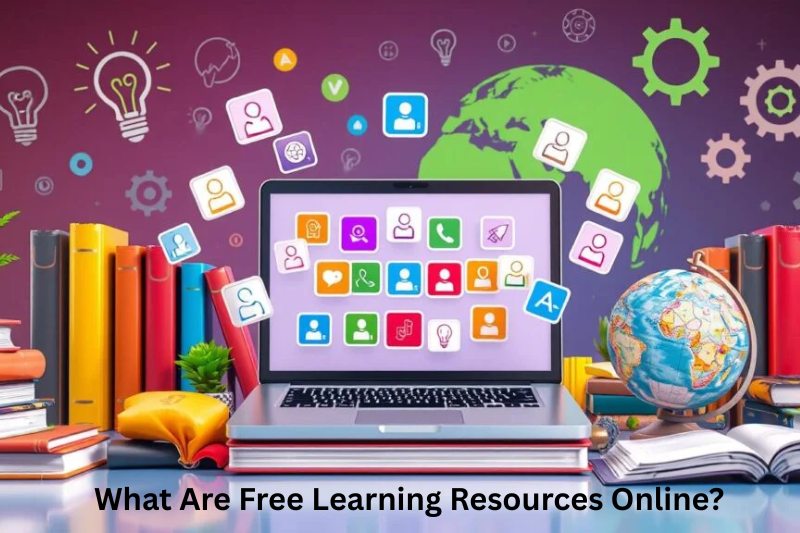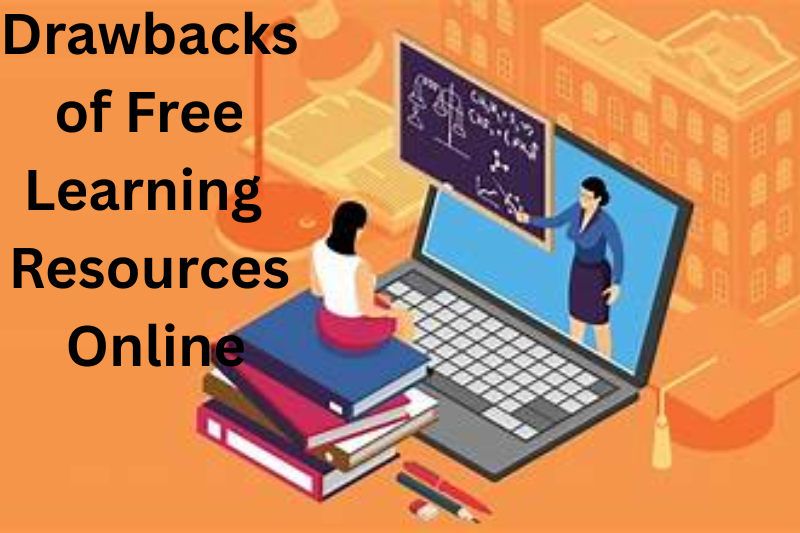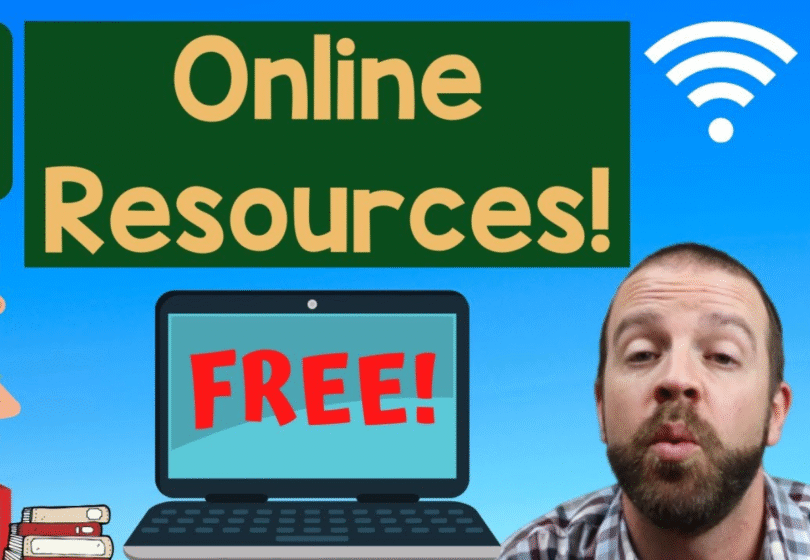Have you ever thought about how incredible it would be if you could get a world-class education without paying thousands of dollars? Well, thanks to the internet, this dream is now a reality. With free learning resources online, anyone with an internet connection can learn new skills, pursue hobbies, or even switch careers—without spending a single penny.
In this article, we’ll dive deep into the world of free online education. I’ll walk you through the best platforms, discuss the benefits and drawbacks, and share tips on how you can maximize these resources to transform your learning journey.
What Are Free Learning Resources Online?

Free learning resources online refer to educational materials, courses, tutorials, videos, e-books, and tools that are available on the internet at no cost. These resources are designed to make learning accessible to everyone, regardless of their location, background, or financial situation.
They come in various forms, such as:
- Massive Open Online Courses (MOOCs)
- YouTube educational channels
- Free PDFs and e-books
- Interactive learning apps
- Open-source software for hands-on practice
The beauty of these resources is that they cover virtually every subject you can imagine—from academic topics like math and science to practical skills like graphic design, coding, digital marketing, cooking, and more.
Popular Free Learning Platforms You Should Know
Let’s talk about some trusted platforms where you can access high-quality free learning materials:
1. Khan Academy
A non-profit educational platform offering free lessons on Math, Science, Economics, Computing, and Arts. It’s ideal for students and lifelong learners who prefer clear, step-by-step video tutorials.
2. Coursera (Audit Free Courses)
While Coursera offers paid certificates, many of its courses can be audited for free. You get access to video lectures and assignments from top universities like Stanford, Yale, and Google.
3. edX (Audit Mode)
Similar to Coursera, edX offers courses from institutions like Harvard and MIT. You can enroll in courses for free using the audit option, which gives you access to all study materials.
4. YouTube Educational Channels
YouTube is a goldmine of free educational content. Channels like:
- CrashCourse (History, Science, Literature)
- freeCodeCamp (Coding tutorials)
- TED-Ed (Animated educational videos)
make learning interactive and fun.
5. MIT OpenCourseWare
Imagine accessing actual MIT courses for free! MIT OCW offers lecture notes, assignments, and exams from various MIT classes.
6. Alison
Alison offers free online diploma and certificate courses in a wide range of categories like IT, Business, Health, and Personal Development.
7. Duolingo
Duolingo is a free language-learning app that makes learning new languages easy and enjoyable through gamified lessons.
8. Codecademy (Free Courses)
While Codecademy has a Pro plan, many beginner-level coding courses are free and perfect for newcomers.
9. OpenLearn by The Open University
Provides free courses in a variety of subjects like health, business, and technology, all backed by The Open University.
You may also like to read these posts:
Technology in Classrooms: A Complete Guide to Modern Learning
AI in Education: Revolutionizing the Way We Learn (Complete Guide
The Future of Tech in Schools: A Complete Guide to What’s Next
Must-Read Educational Books: Your Ultimate Guide to Learning & Growth
Benefits of Free Learning Resources Online
Now, let’s dive deeper into the advantages of using free learning resources online. It’s not just about saving money—there’s so much more to it.
1. Zero Cost, Maximum Value
You can access premium educational content without spending a dime. This is perfect for students, professionals, or anyone on a budget.
2. Learn Anytime, Anywhere
You’re not tied to a classroom schedule. Whether you prefer learning early in the morning or late at night, you can learn at your own pace and convenience.
3. Access to Global Knowledge
Platforms like edX, Coursera, and MIT OCW bring lectures from the world’s top educators to your screen, no matter where you live.
4. Massive Variety of Subjects
From technical skills like web development and data science to soft skills like communication and leadership, the diversity is mind-blowing.
5. Skill Development for Career Growth
You can gain practical skills that are in demand in the job market, improving your chances of getting hired or promoted.
6. Self-Paced Learning Builds Discipline
Since you’re in control of your learning, it fosters self-discipline, responsibility, and time-management skills.
7. Community Support and Peer Learning
Many platforms have discussion forums where learners can interact, ask questions, and share knowledge.
Drawbacks of Free Learning Resources Online

While free learning resources online are incredibly beneficial, it’s important to be aware of their limitations too.
1. No Personalized Mentorship
Unlike traditional classes or paid courses, free platforms usually don’t offer personalized mentorship or feedback from instructors.
2. Certificates May Lack Formal Accreditation
Many free courses offer certificates of completion, but these may not be officially recognized by employers or institutions, limiting their value in formal job applications.
3. Overwhelming Choices Can Lead to Confusion
With thousands of courses available, it can be overwhelming to decide which one to choose. This may lead to decision fatigue or wasting time on low-quality content.
4. Requires High Self-Motivation
The flexibility of online learning is a double-edged sword. Without deadlines or peer pressure, you need strong self-motivation to stay consistent and complete courses.
5. No Hands-On Experience in Some Fields
Certain subjects, like medical sciences or mechanical engineering, require practical, hands-on training which online resources cannot fully provide.
How to Make the Best Use of Free Learning Resources Online?
Here are pro tips to ensure you get the most out of these free resources:
- Set Clear Goals – Know exactly what you want to achieve (e.g., mastering Python, learning French basics, etc.).
- Curate a Learning Path – Choose a structured learning path instead of random courses to avoid confusion.
- Make a Study Schedule – Allocate specific times in your day/week for learning.
- Take Notes and Practice – Passive watching doesn’t work; take notes and apply what you learn through mini-projects or quizzes.
- Join Online Communities – Engage in forums, Reddit threads, or Discord groups related to your subject.
- Don’t Chase Certificates Blindly – Focus on gaining real knowledge and practical skills. Certificates are a bonus, not the end goal.
Conclusion
In today’s connected world, free learning resources online are revolutionizing education. You no longer need to enroll in expensive colleges or purchase costly books to learn valuable skills. From coding and business management to arts and languages, the entire world of knowledge is now just a click away.
However, success with free resources depends on your self-motivation, discipline, and choosing quality content. If you can master these, there’s nothing stopping you from becoming an expert in your field—all for free.
So go ahead, explore these resources, and embark on your learning adventure. Your next skill upgrade is just a click away!
FAQs
Q1: Are free learning resources online really effective for self-education?
Q2: Can I get a job after learning from free online resources?
Q3: Do free courses offer certificates?
Q4: Which platforms offer the best free learning resources online?
Khan Academy
edX (Audit mode)
Coursera (Free courses)
YouTube Educational Channels
MIT OpenCourseWare
Alison
freeCodeCamp
Duolingo (for languages)
Q5: How do I stay motivated when learning online for free?
Set clear learning goals.
Create a realistic study schedule.
Break down big tasks into small milestones.
Join online communities and forums.
Track your progress and reward yourself for completing modules.








